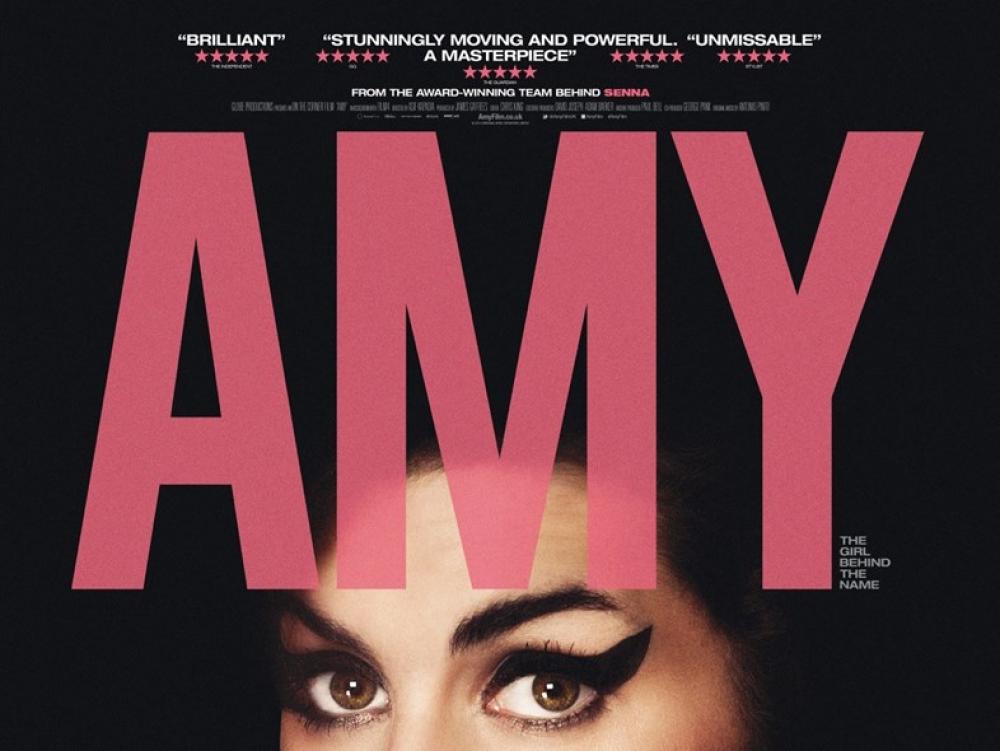The Hypocrisy of the Amy Winehouse Documentary, Amy
Share with friends

Is the new Amy Winehouse documentary really any different than the celebrity-worshipping culture it condemns?
Excuse me for saying it, but I think we love to watch people die. If the movies have taught us anything about ourselves, this is it. We love watching people explode. We love watching them slowly waste away from disease. More than anything, we love watching fame destroy them.
This schadenfreude is my personal explanation for the recent uptick in singer-destroyed-by-fame documentaries. Montage of Heck, HBO’s devastating portrait of the rise and fall of Kurt Cobain, Netflix’s What Happened Miss Simone about the descent of Nina Simone (which does not actually end in death, though close), and finally Amy, Asif Kapadia’s tabloid-esque view of Amy Winehouse taking same doomed journey, are all films that both eschew and rely upon paparazzi footage.
Montage is artsier and a bit more experimental than Amy, but the films are still almost identical. Both use home videos and journal entries to presage the geniuses inevitable fates, even from childhood. Both films are completely and utterly in love with their subjects, and both seem to regard their respective singers as something beyond human. Every little thing they do is magic.
In Amy, we watch Amy Winehouse grow up on home video. She begins as a “normal Jewish girl from North London" with an out-of-this-world voice and a strained relationship with her clueless, uninvolved parents. She is your standard apprehensive star -- Kapadia makes sure you understand that she totally never wanted this and would have preferred being a singer in small time Jazz clubs. Kapadia worships her so much that he glosses over every opportunity to explore juicier details that would reveal Amy's actual flaws, e.g. why did all of her closest friends stop talking to her? Did she get plastic surgery that would have been completely at odds with her persona? What were the the exact circumstances surrounding her death, and her bodyguard's failure to intervene? These questions are glossed over in order to establish distinct antagonists. Her father and husband Blake Fielder are inherently evil forces in the employ of the evilest force of all, the paparazzi media. According to Kapadia, it is this dark trinity that destroys her. She worships her dad, but he becomes more interested in doing his own reality show, and ultimately sacrifices her need to escape the cameras for his own ends. She also worships her on-again off-again husband, Blake Fielder, but he too is ultimately only around for the feast, and leaves as soon as the slightest risk of famine arises.
I do not blame Kapadia for telling the story as he sees it. He did the research, after all, and after combing through thousands of hours of video he understands the situation much better than an ordinary onlooker like me. I similarly take no issue with his storytelling prowess. The film is incredibly engaging and emotionally resonant. Near the beginning, there is a scene where a teen Winehouse, probably around thirteen years old, is messing around with some friends and she starts singing. It is almost like the whole world stops in that moment, as both it and her friends realize that this voice is going to be transcendent. It is literally impossible to look away.
But the reason it is impossible to look away is because we know a train wreck is waiting at the end of the rainbow. Kapadia is no stranger to wrecks. His last movie, Senna, featured the same basic narrative about a famous race car driver who notoriously died on the track. A hero is born, we watch him grow, succeed and become arrogant, and we all know what is coming. In Senna, it was his own ambition, not the media, that killed our hero, and thus the film avoided the latent hypocrisy present in Amy.
Winehouse, according to Kapadia, is killed by the media, yet to tell the tale Kapadia uses the a massive amount of footage shot by the paparazzi. We are drawn to his idol-worship for the same high-school reasons we are drawn to the tabloids in the grocery store checkout line. Thus we arrive at a hypocrisy. Amy, like Montage of Heck, is celebrity worship dressed up as social criticism. It uses our love (and hate) of these heroes in the exact same way as the tabloids do. To tell a story condemning tabloid culture, using hundreds of hours of paparazzi-shot footage, is like a war protest gone violent. Yes, there is an impact, and yes, the mirror to culture is successfully held up, but ultimately the message (and the messenger) loses all credibility because the medium undermines the mission.
A better documentary would not rely on our hidden desire to see the destruction of an angel, it would have admitted that Winehouse was not an angel at all. As she climbs the fame ladder she swears that she is really, truly, not into awards shows or really the whole "approval" thing at all, but when she wins a Grammy she apparently drops all that and acts like any excited schoolgirl. Kapadia makes it evident that that it is somewhat of a put on, but he still never explores the question of why. At times she seems that her rejection of the pressure to be beautiful is an essential part of her charisma, yet at others, her bulimia for example, or the breast implants that it appears she has gotten towards the end, or her general transformation from healthy girl to a sort of tits-on-a-stick pin-up, are never explored as potentially disingenuous or hypocritical. For Kapadia, Amy is never pretending, nothing is ever her fault. Her bulimia is her parents fault. Her addiction is Fielder’s fault. Kapadia worships her just like the crazed fans that more or less killed her.
It would have made for a much less titillating documentary, of course, to criticize Amy for selfishness or hypocrisy or cruelty even, or to explore the real reasons why her friends stopped talking to her. So Amy sides with commercialism, cultural candy painted like a cultural vegetable. It allows thinking people to enjoy the tabloid story and since it is nearly two hours long, it is almost more pathetically pornographic than the stuff you pick up at the grocery store.
Had Winehouse retired and lived a quaint, healthy life as a small-time jazz musician, which is supposedly what she always wanted, this documentary would never have been made. She would have been just another one hit wonder. Just another normal human, who maybe fell into being a celebrity but ultimately ended up a boring old nobody just like the rest of us. But we don’t want to see that story. We want to believe in a God that got too close to the sun.




